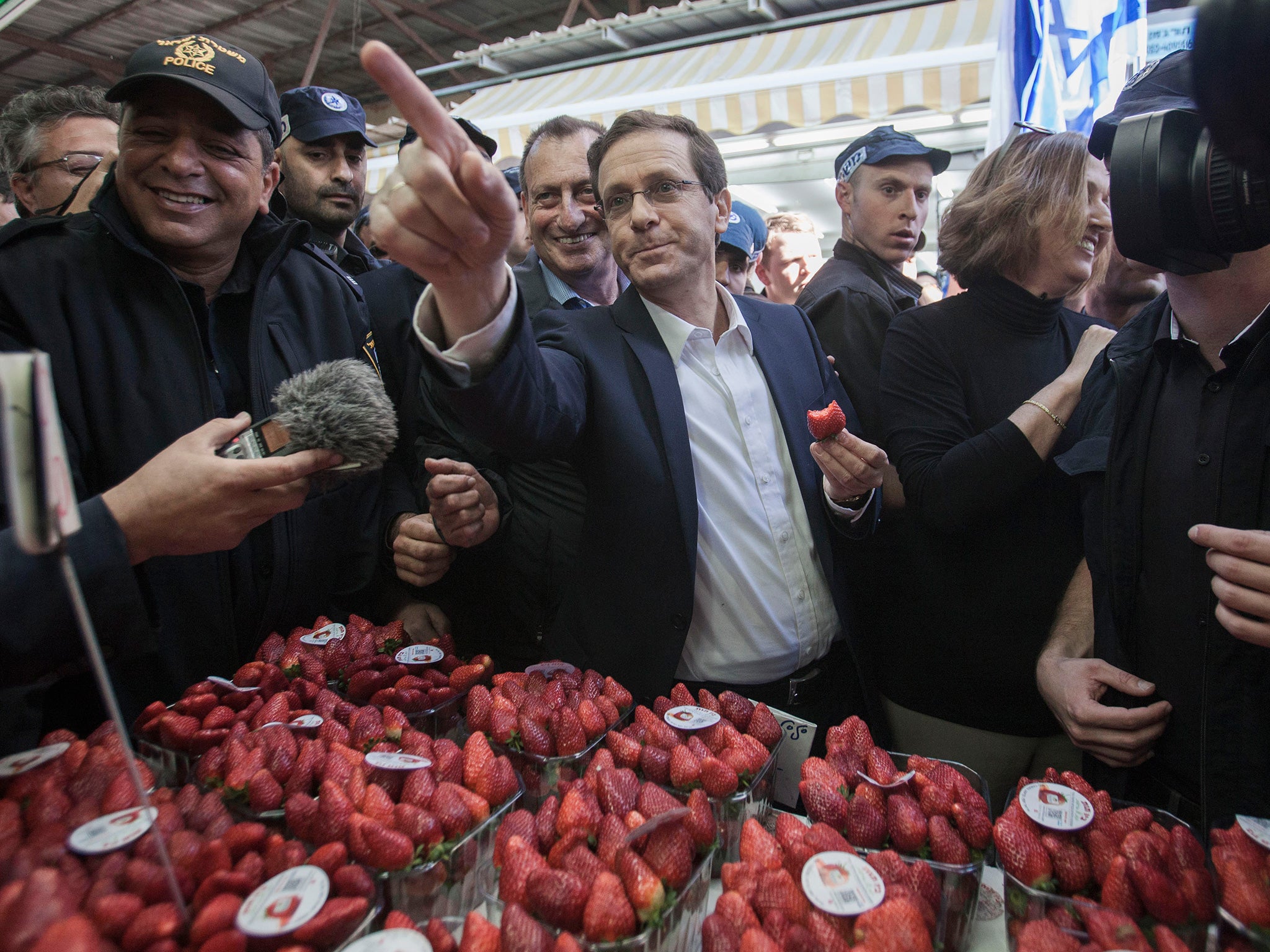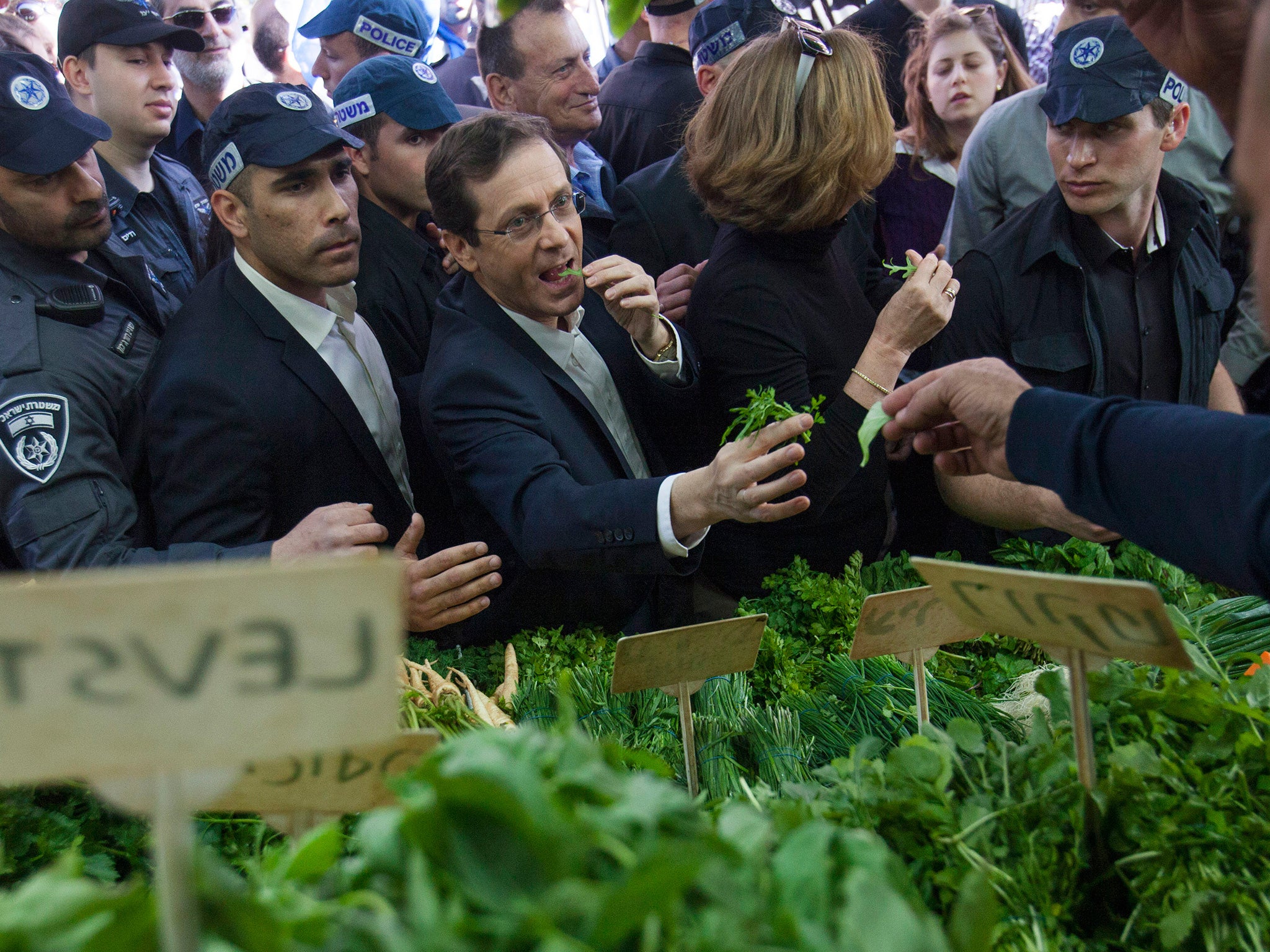Israel election: Why the cost of food and lack of affordable housing are a bigger threat to Benjamin Netanyahu hopes than Iran
Soaring shopping bills may be the PM's undoing in next week's vote

Among the shoppers at a supermarket in Jerusalem, frustration abounds. As the cost of living soars, many are having to count every shekel.
Many Israelis are worked up not only about their grocery bills but also the fact that it seems impossible to obtain affordable housing in the country – the Achilles heel of Prime Minister Benjamin Netanyahu as he struggles to gain re-election on Tuesday.
It is not just lower income people who are feeling the pinch. Even those with well paid jobs were shopping at the discount market, telling of being squeezed financially.
Economic frustration appears to be the major factor in Israel’s edging towards a turnover in its leadership next week. The centre-left Zionist Union enjoyed a three seat edge over Mr Netanyahu’s Likud party in a poll published today. The polls have alarmed the Likud party which has started exhorting supporters in text messages to “wake up” and vote – or face having a government including the left-wing Meretz party and “the Arabs”.

Analysts say that if the Prime Minister goes down to a defeat, hoped for in many parts of Washington and Arab capitals, it will be not over Iran or settlements in the occupied West Bank, but over bread and butter issues.
On the surface, Israel’s economy appears a success story with growth at a robust 7.2 per cent during the fourth quarter of 2014, according to official statistics. But wide swathes of the public are not benefiting. Forty-one per cent of Israelis are in a constant state of overdraft, according to official statistics, with most blaming the high cost of living. A basket of basic products was 12 per cent more expensive in Israel than the OECD average last year, according to the Bank of Israel.
And so organistion becomes critical in these constrained times. Lior Sapir, 32, a software engineer whose wife works in administration at the Hebrew University showed The Independent an excel file with the prices of all the items on his shopping list. “We have to be very organised to save money, I have my target and I don’t allow myself to take anything that is not on the list,” he said. “I don’t buy what I want to.” Pnina Chen, another shopper who is a team leader for a phone company, says her salary cannot keep up with costs. She recently switched brands of cheeses to save money. “It doesn’t taste as good but it’s cheaper,” she said.
Were it not for his problem finding affordable housing for his wife and three children, Mr Sapir would vote for Mr Netanyahu because he supports his tough stance on Iran. “I think he is the Churchill of our time but he has missed a huge spot, actually the biggest spot, which is housing.”

Mr Sapir has been looking for a flat for five years and says his only option is to move to the periphery of the country, something he cannot do because his job is in Jerusalem. “Since I got married I’ve been looking all over. I couldn’t buy any flat, even a three room, and the prices are so high that every coin I saved has no influence.” Flat prices have risen by 56 per cent over the six years Mr Netanyahu has been in office, according to official statistics.
The government says it is doing everything possible to make more housing available. Mr Netanyahu recently shifted the topic to the Iran threat when asked about a damning state comptroller’s report on housing. And Likud spokesmen are invoking recently released OECD figures that showed food prices began to drop over the last year.
But the Zionist Union and other parties, including Kulanu, a centrist grouping running its campaign solely on economic issues, have been barraging voters with the message that they will have more in their pockets by shunning Mr Netanyahu.
Kulanu’s leader, Moshe Kahlon, a former Likud minister, made his name by reducing mobile calling prices by 90 per cent. He is promising to bring down housing prices by busting up the Israel Lands Authority, which has a monopoly on land allocation in the country and he is promising to reduce high banking costs. Polls show him gaining 12 seats and on course to become Israel’s kingmaker in post-election coalition bargaining.
Join our commenting forum
Join thought-provoking conversations, follow other Independent readers and see their replies
Comments